



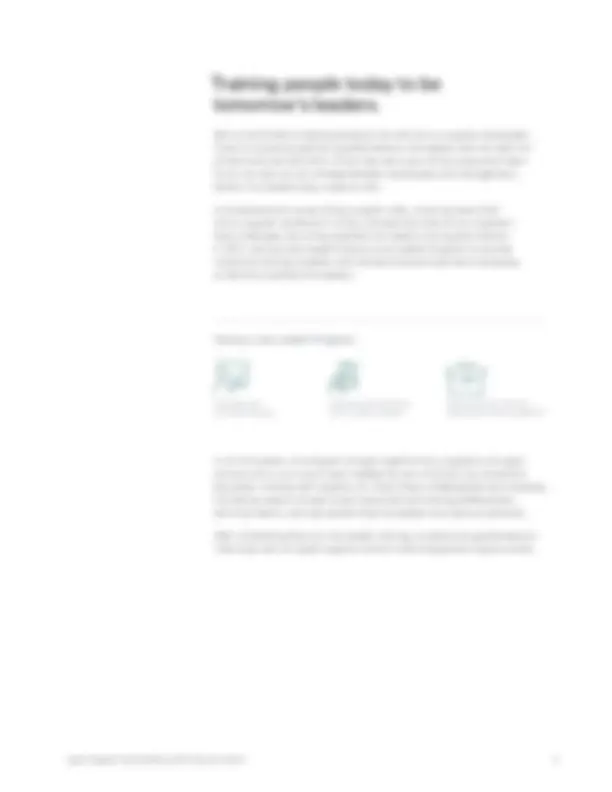


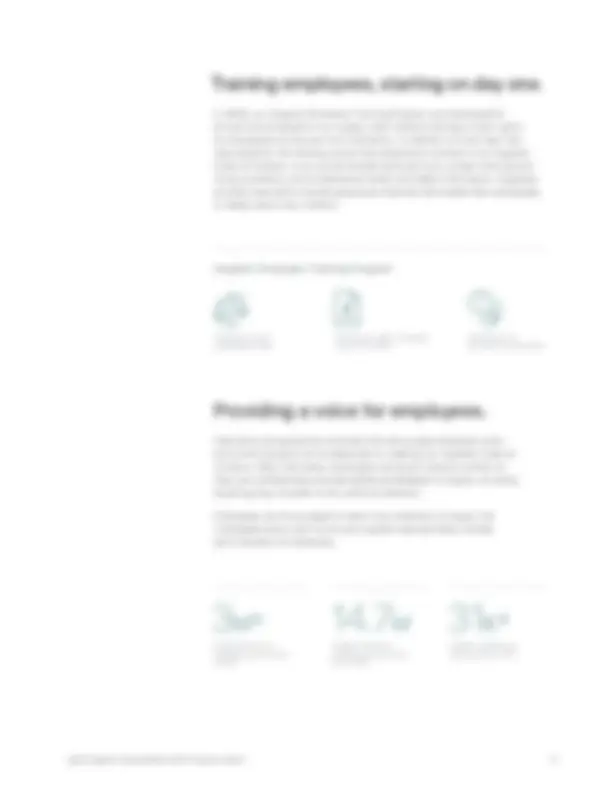



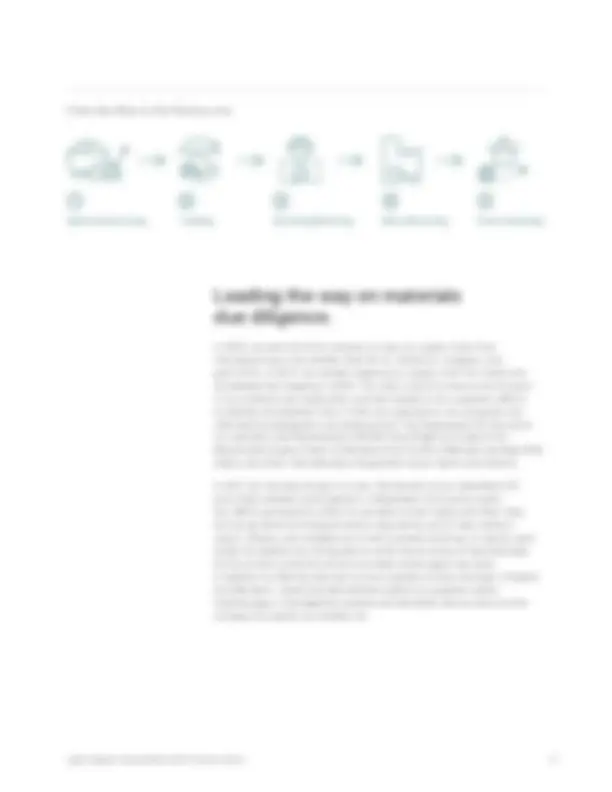
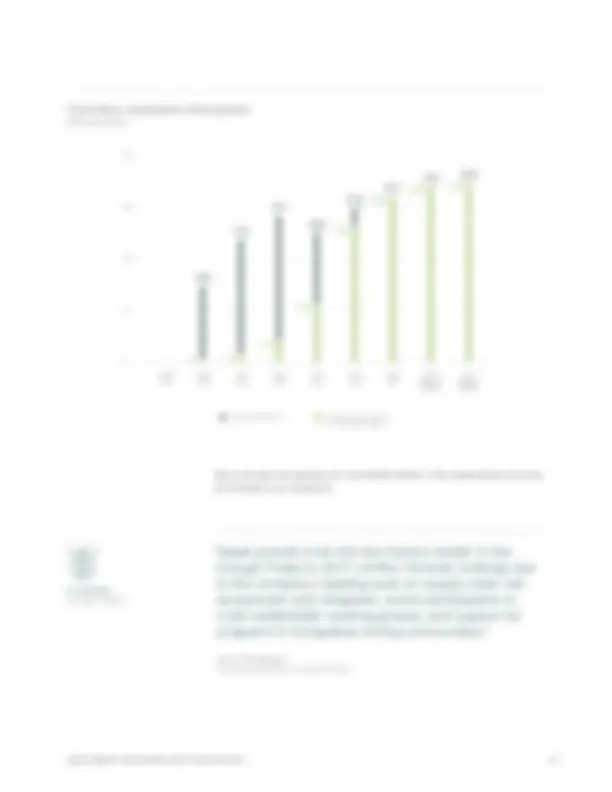
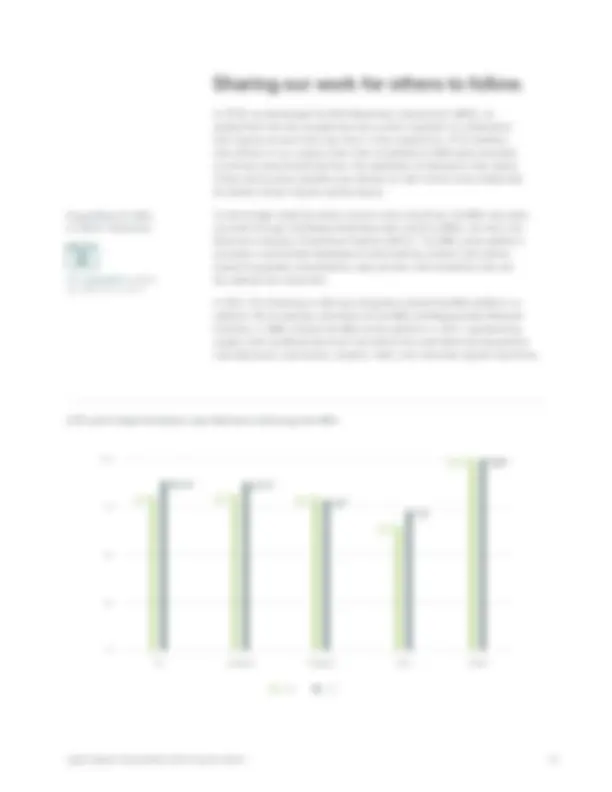
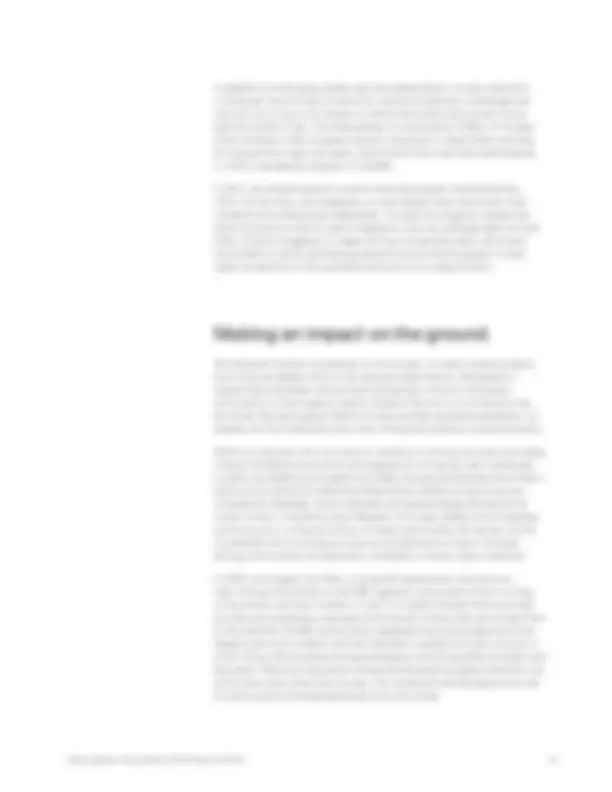


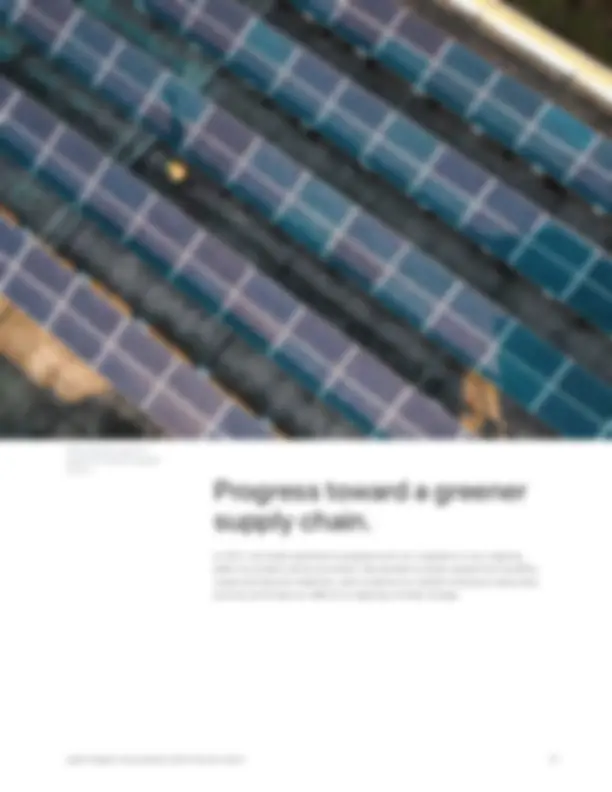
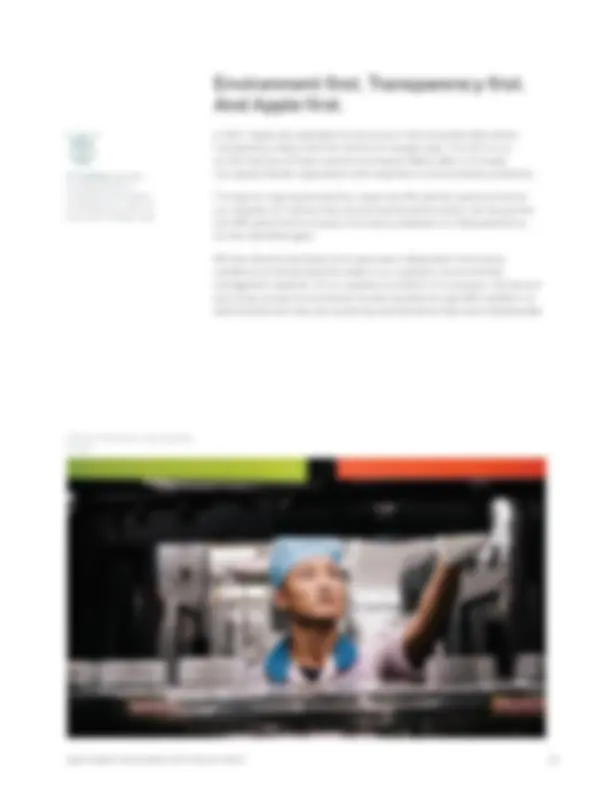
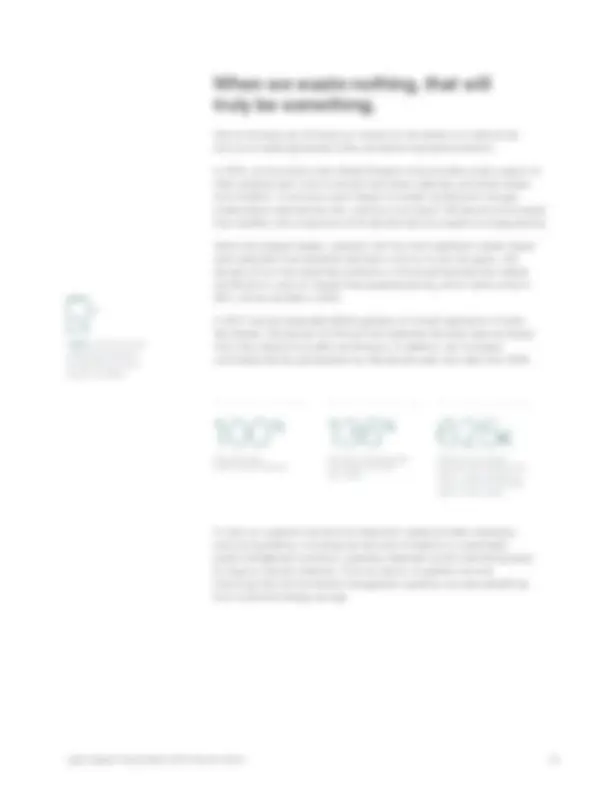

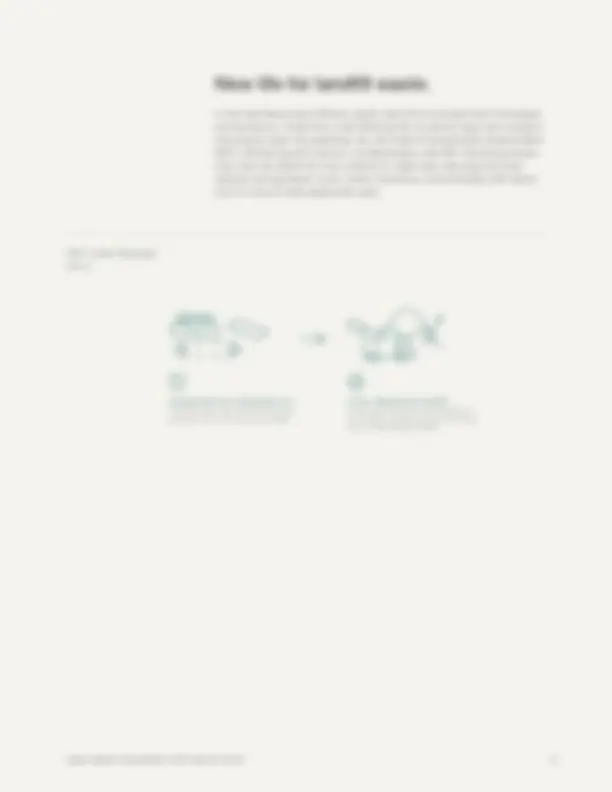
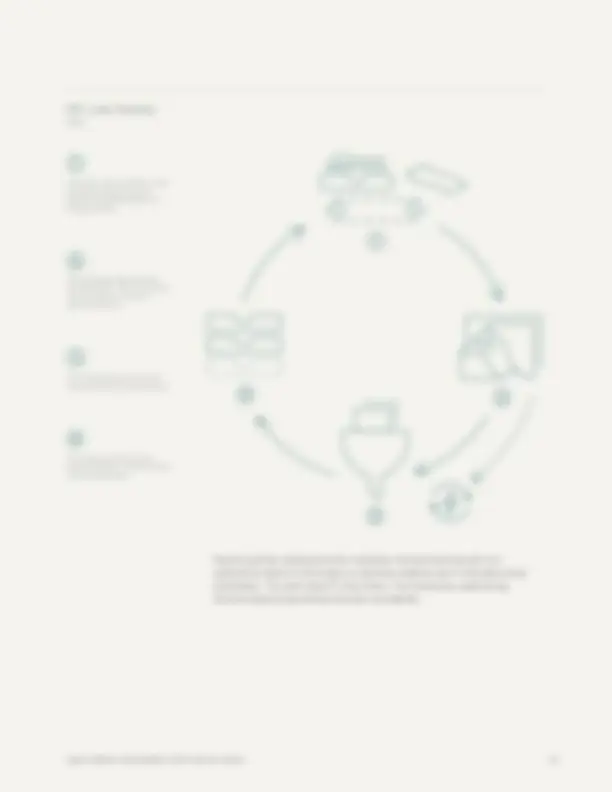
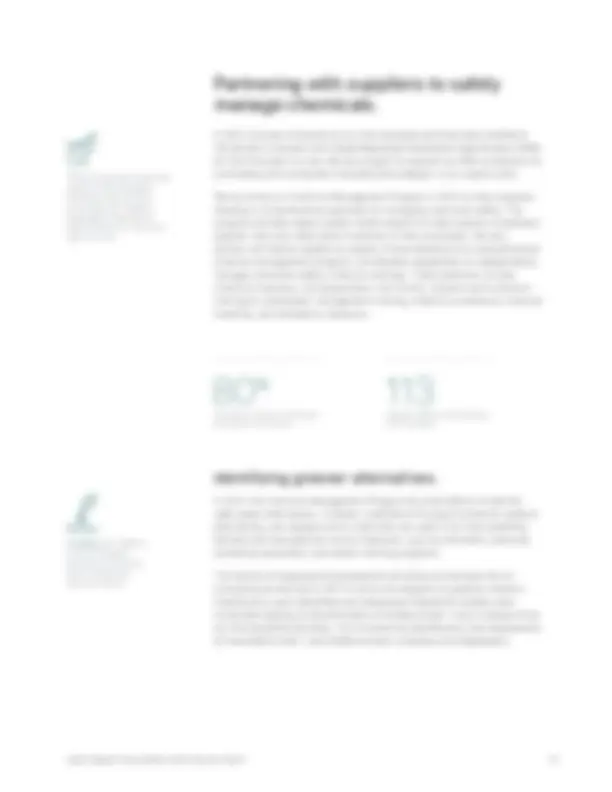
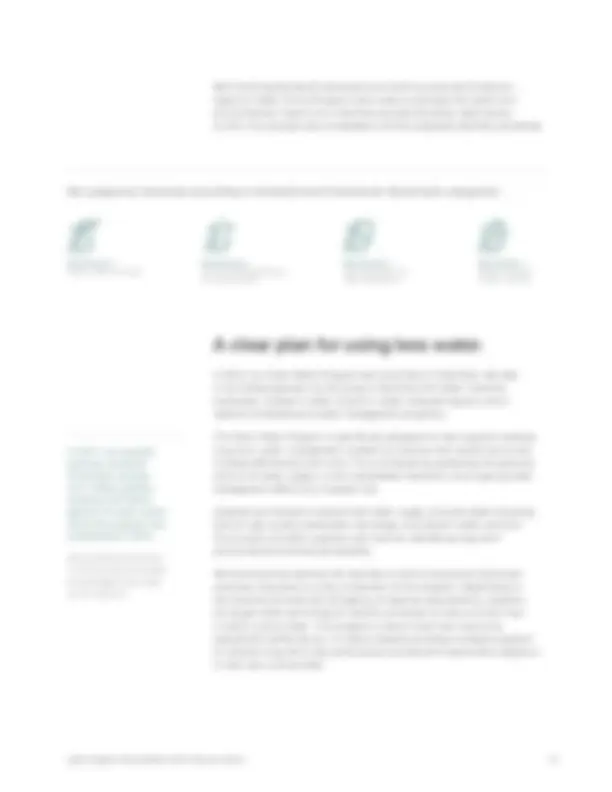

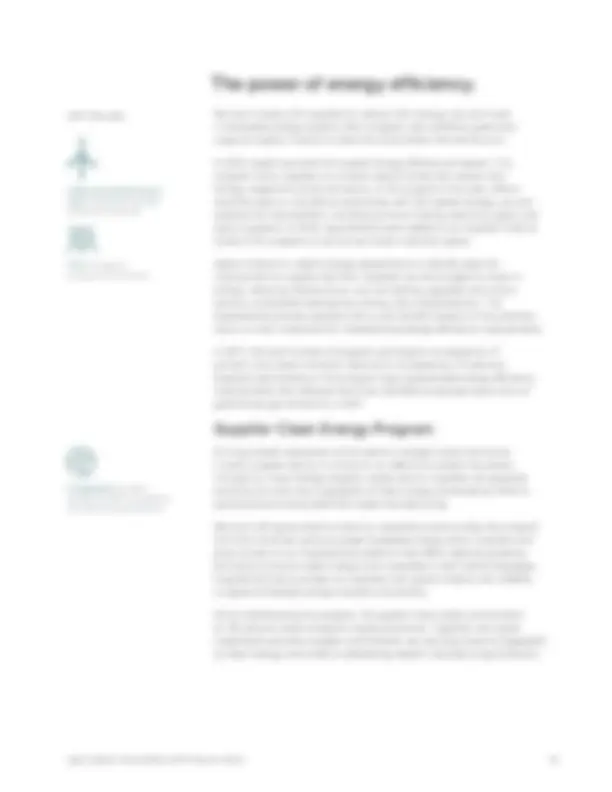




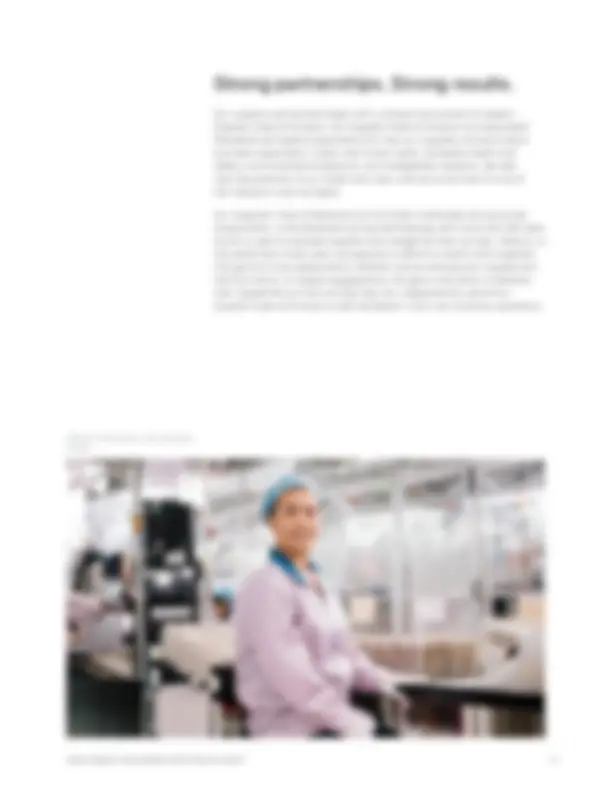

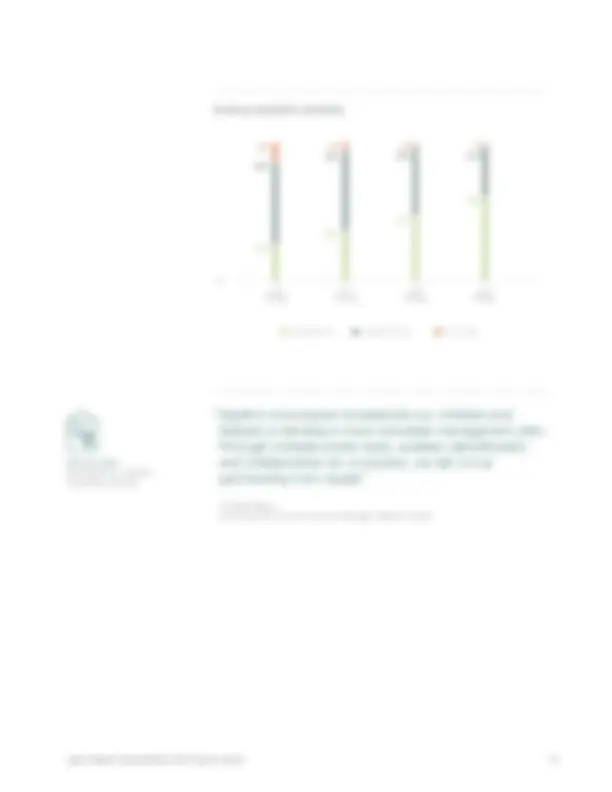

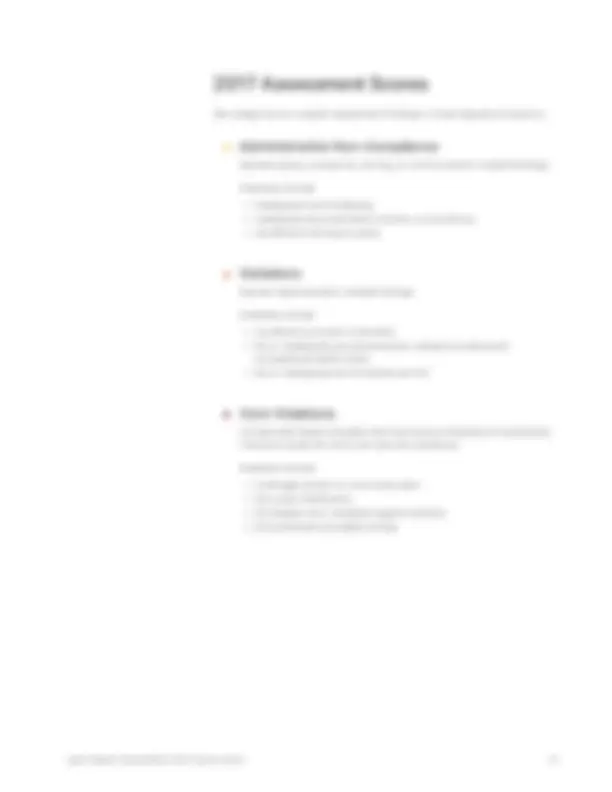
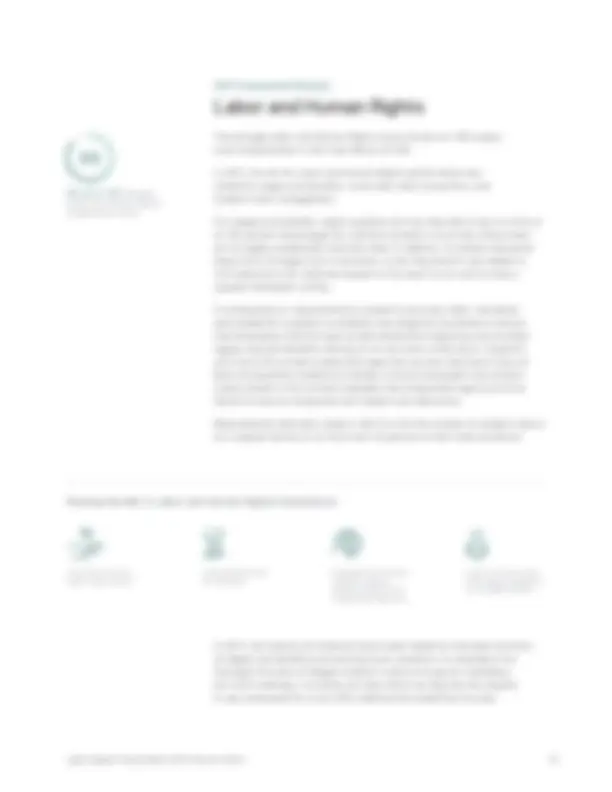
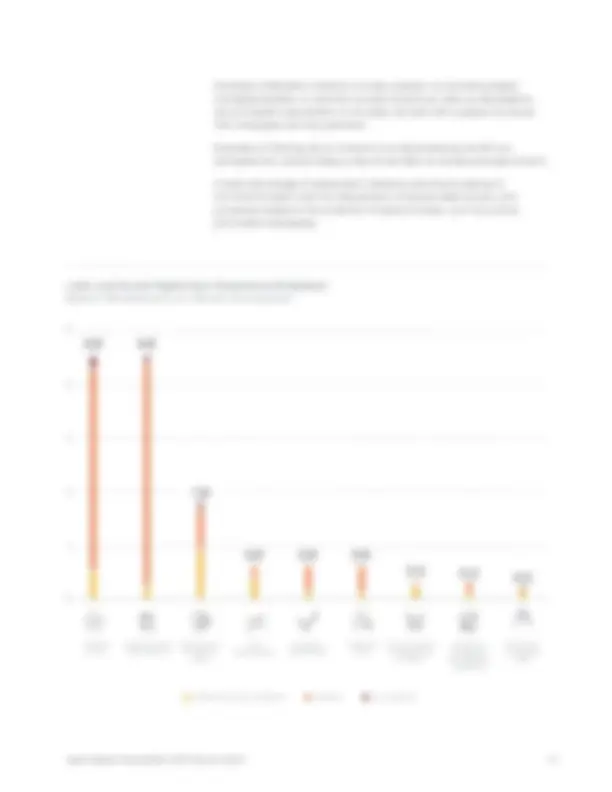
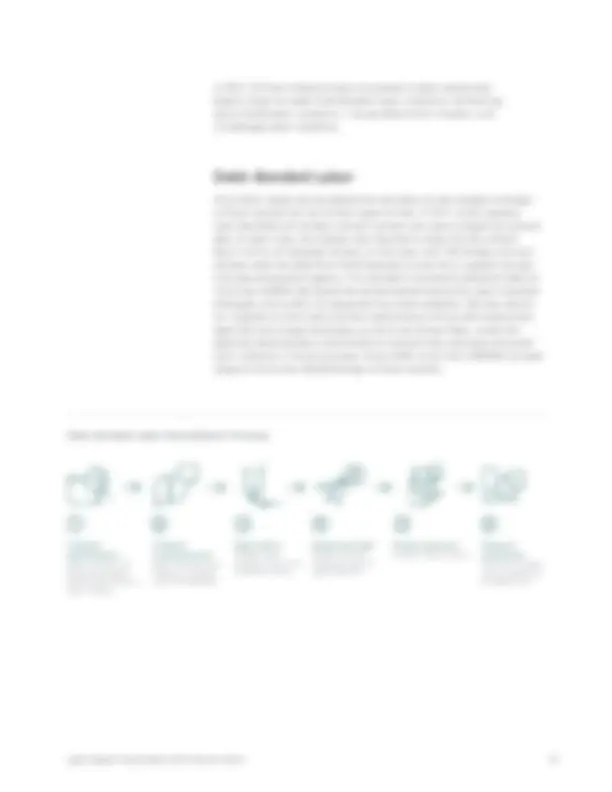
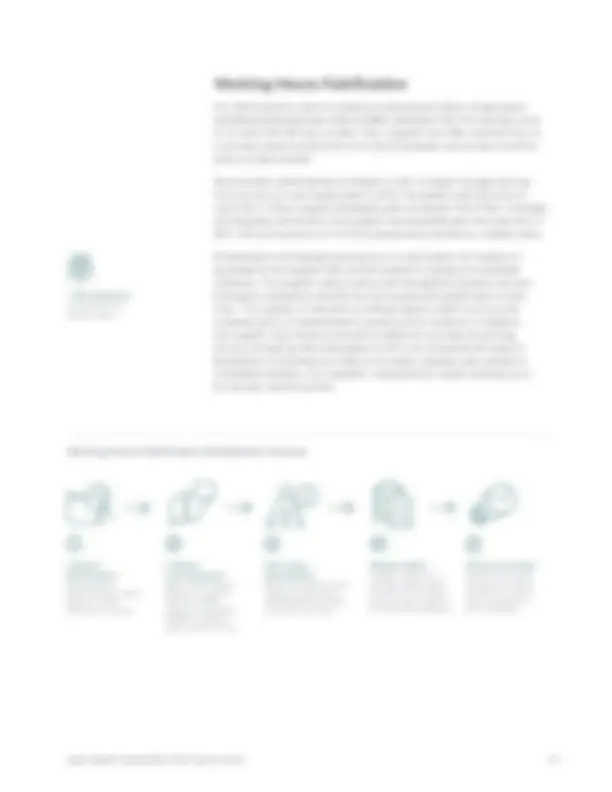
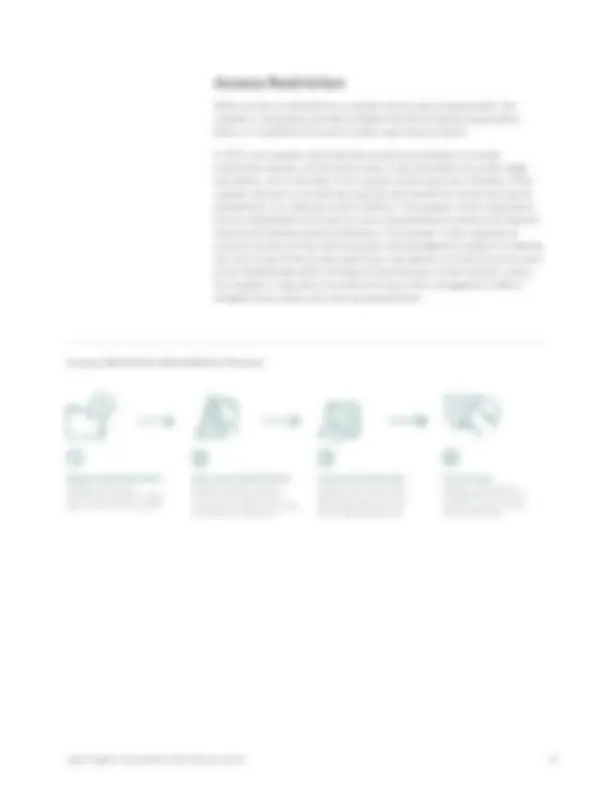
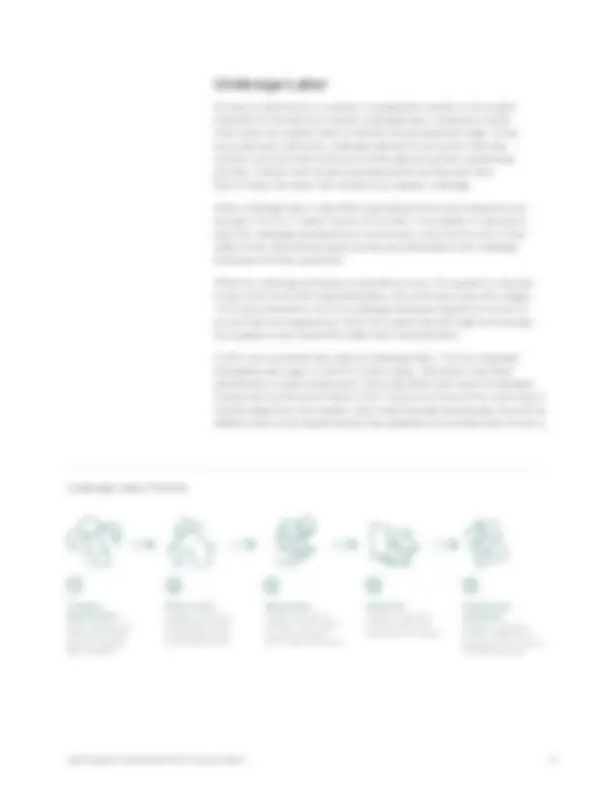
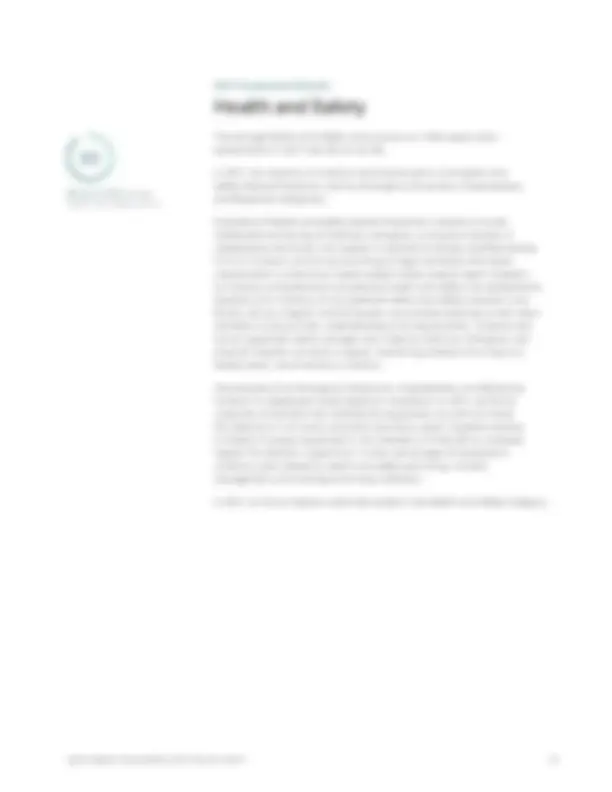
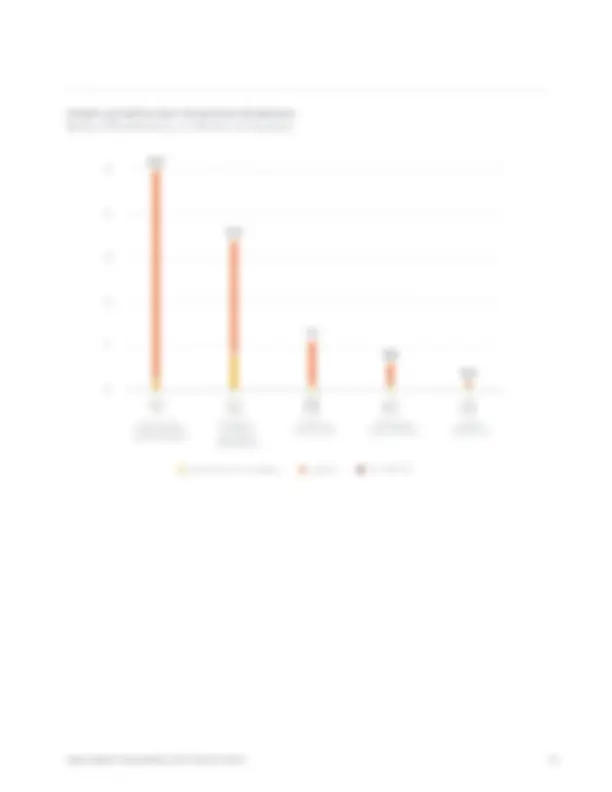
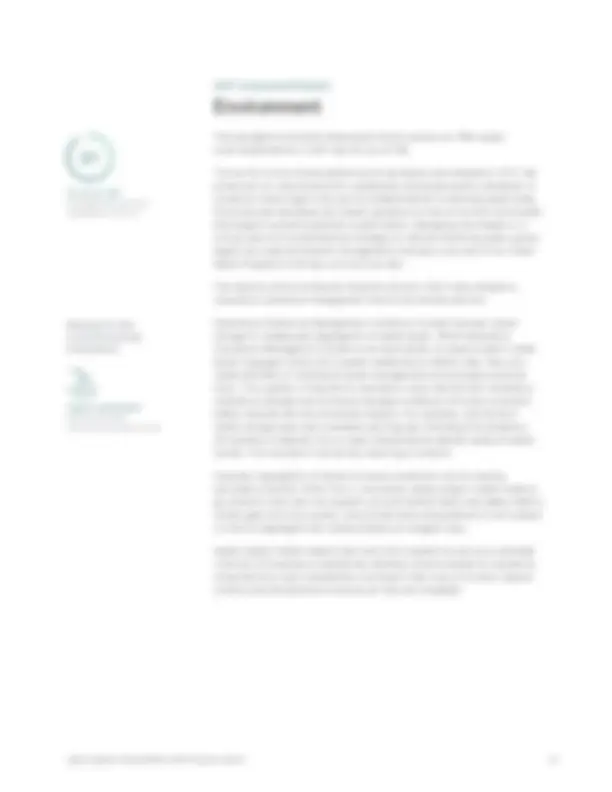
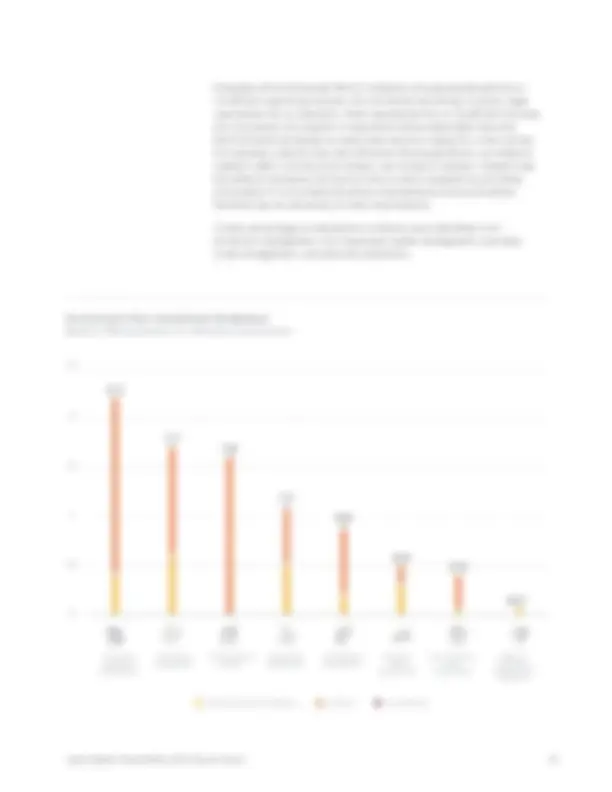
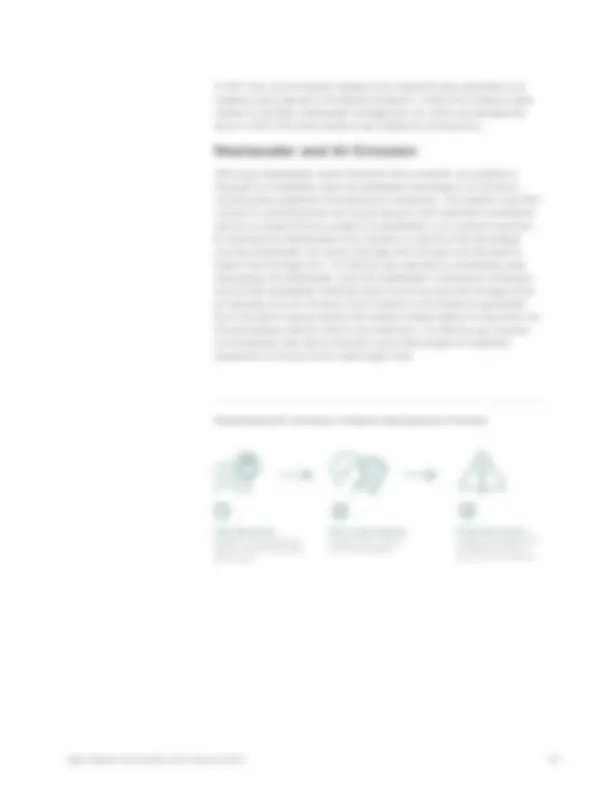
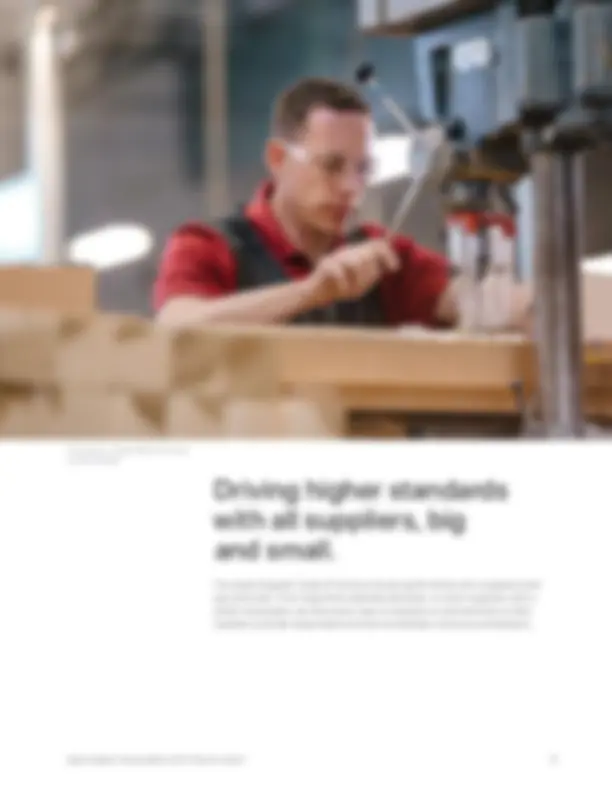
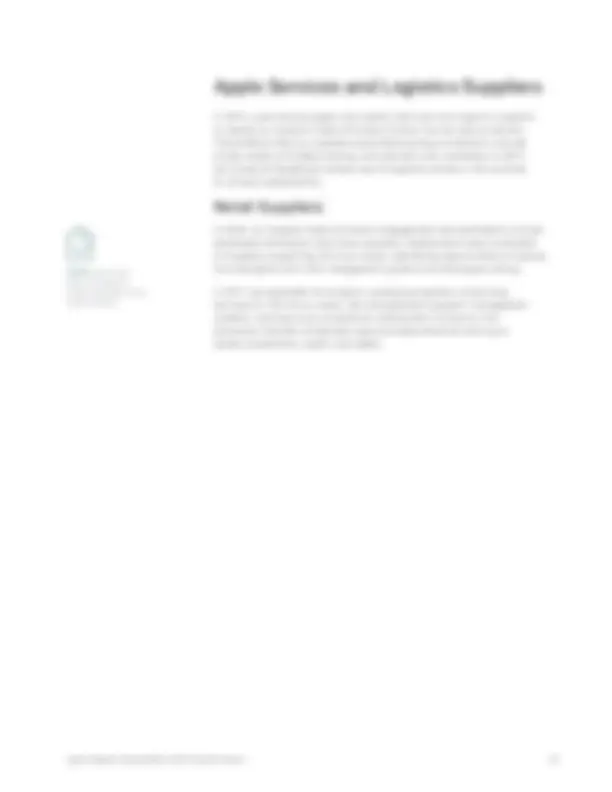



Study with the several resources on Docsity

Earn points by helping other students or get them with a premium plan


Prepare for your exams
Study with the several resources on Docsity

Earn points to download
Earn points by helping other students or get them with a premium plan
Community
Ask the community for help and clear up your study doubts
Discover the best universities in your country according to Docsity users
Free resources
Download our free guides on studying techniques, anxiety management strategies, and thesis advice from Docsity tutors
Apple's supplier responsibility progress report for the year 2018. It highlights various initiatives taken by Apple to ensure strict standards in areas of people and environment. The report covers metrics related to employee training, waste reduction, water conservation, and women's health. Apple's goal is to bring health awareness programming to 1 million women at their suppliers by 2020.
What you will learn
Typology: Study notes
1 / 59

This page cannot be seen from the preview
Don't miss anything!




















































A commitment to people
and the planet.
Treating people with dignity and respect, providing advancement opportunities, and conserving our planet’s resources are fundamental to how an Apple product is made. That’s why we develop programs throughout our supply chain that drive progress with suppliers, while benefiting the people in our supply chain — and the planet.
We partner with our suppliers to offer global programs that provide education and advancement opportunities to their employees. To date, these partnerships have helped millions of people take advantage of opportunities outside of the workplace. At the core of every employee’s livelihood is a safe and healthy workplace where their rights are respected each day. We’re committed to implementing responsible practices in our supply chain to make a positive impact on employee well-being.
An environmentally responsible supply chain is a major part of Apple’s mission to leave the world better than we found it. Along with our suppliers, we continue to fight climate change, reduce water use, implement green chemicals in manufacturing operations, and eliminate waste.
Apple’s Supplier Code of Conduct underscores a commitment to human rights, environmental protections, and sound business practices. Every year, we conduct assessments to ensure suppliers are meeting our high standards. The number we conduct increases each year and the amount of high-performing suppliers continues to grow. It’s all possible thanks to strong partnerships between our suppliers and Apple.
A commitment to people, the planet, and the progress of our suppliers is at the heart of our work. We will always seek to extend our efforts to make positive impacts and drive lasting change.
2017 Results Highlights
100
% 625 K
US$ 1.9M
756
3 M+ 12 K+
320 K
30
4 K+
5.1B
35
%
supplier employees trained on their rights worldwide
metric tons of waste diverted from landfill since 2015 — that’s enough to cover 2,545 soccer fields about 1 meter deep
in recruitment fees returned to supplier employees in 2017
of all iPhone final assembly facilities worldwide diverted 100 percent of waste from landfills
supplier facility assessments conducted in 2017
enrolled in higher education degree since 2008
annualized metric tons of carbon emissions reduced in 2017, enough to remove every car off the road in Hong Kong for 62 days
countries in which assessments took place
participants received preventative and women’s health training
gallons of water conserved in 2017, enough to fill 7, Olympic-size swimming pools
increase in high-performing suppliers year over year
Carpenter, Apple Retail fixtures United States
People
Empowering women through
health education.
At Apple, we are committed to helping our supplier employees gain access to knowledge and opportunities that allow them to take charge of their own health and well-being.
In 2017, efforts to empower women through health education began at several of our supplier facilities in China and India. Our goal is to enable women in factories to take charge of their personal health and well-being by becoming well-informed of risks specific to women. The program also encourages them to take a leadership role by sharing their new health awareness with their colleagues, friends, and community.
Our curriculum provides vital information and access to services that women need to maintain their health, including critical topics such as self-examination for early cancer detection, nutrition, personal care, and maternal health. Extended collaboration among Apple teams, factory management, major medical institutions including the Department of Community Health, St. John’s National Academy of Health Sciences in Bangalore, welfare officers, trainers, and the women themselves is essential to achieve the program’s goals. All training is conducted in the participants’ local language and tailored to the needs of factory employees.
The program builds upon itself by leveraging a peer-to-peer model. Each supplier site’s peer educators are trained on a specific health issue each month. Through soft skills and leadership training, the employees develop more self-confidence. As they continue to learn new topics, peer educators host sessions to share their knowledge with program participants.
For our programs based in China, we’re working with Peking University (PKU) to develop a rigorous independent evaluation process to measure program impacts. This will allow us to better understand the resources available to women and their current level of health awareness. With this data, we will be able to continually shape the programming to best suit employee needs into the future.
Early Cancer Detection Nutrition^ Personal Care Women’s Health
We are setting a goal to bring health awareness programming to:
1M women at Apple suppliers around the world by 2020, who will extend health awareness through their community interactions
Women’s health program participants China
“I have been sharing what I learn in the class about preventative care and women’s health with my mom. As a result, she visited her physician for an annual checkup, something she had stopped doing prior to my taking the class.“
Feeling good about health.
Miao Minghui Women’s health program participant
A teacher dedicated to
student achievement.
Chen Changwei teaches business classes as part of the Apple Factory Line Leader Program at a school in Kunshan, Jiangsu province. She discusses her experience as a teacher for the program.
I’ve led many enterprise corporation projects and have seen many similar projects at other schools. The biggest differences from this program to other projects are: 1) The innovation. It’s the first time this kind of program, which develops technical employees, has been initiated by a Supplier Responsibility department of a big company. 2) The wide scope and multiple partners. 3) Third-party monitoring systems. The program will be evaluated by a leading university to test its validity.
I think regular college offers high-level academic talent development, while vocational initiatives such as the Factory Line Leader Program can offer more skills-based talent development that is necessary in China.
Factory Line Leader Program Instructor China
“Apple can lead in bridging the gap between schools and companies to drive opportunities that benefit both.“
Chen Changwei Factory Line Leader Program instructor, China
Enabling learning through smarter
educational content offerings.
In 2008, we set up classrooms for employees to access educational content before and after work at our supplier sites across China. The program was named the Supplier Employee Education and Development (SEED) program. SEED gives employees the opportunity to study topics such as language learning, software animation, and small business start- up training. We also partner with our suppliers to provide scholarships to employees who want to study for an associate’s or bachelor’s degree. To date, more than 2.5 million people have participated in SEED and more than 12,000 have enrolled for a degree.
In 2017, we focused on developing high-demand content to address students’ specific development goals. We also introduced a vocational certification program for workers who aren’t interested in studying for a degree, but would like to grow more job-based skills. Manufacturing skills gained through SEED’s vocational certification can increase a supplier employee’s opportunities for job advancement.
In the last 10 years:
2.5M+ supplier employees participated in SEED offerings
12K+ people enrolled in higher education degree
iPad Production Line Operators China
A workplace that empowers
and protects people.
We hold ourselves and our suppliers to the highest standard when it comes to human protections. Our dedication to treating the people in Apple’s supply chain with dignity and respect is unwavering. We will continue to go beyond what’s regulated to do what’s right for those who work in Apple’s supply chain.
iPhone Production Line Operator China
Training employees, starting on day one.
In 2008, our Supplier Employee Training Program was developed to ensure that all people in our supply chain receive training on their rights as employees during new hire orientation. In addition to local labor law requirements, the training covers the protections outlined in our Supplier Code of Conduct, such as permissible working hours, proper working and living conditions, and fundamental health and safety information. Suppliers are also required to provide grievance channels that enable their employees to safely report any violation.
Providing a voice for employees.
Interviews and grievance channels that encourage employee voice and communication are fundamental to meeting our Supplier Code of Conduct. After interviews, employees are given a phone number so they can confidentially provide additional feedback to Apple, including anything they consider to be unethical behavior.
Employees are encouraged to report any retaliation to Apple. We investigate every claim to ensure suppliers appropriately remedy each situation as necessary.
people trained on workplace protections in 2017
people trained on workplace protections since 2007
supplier employees interviewed in 2017
Training on local employment laws
Notification of grievance mechanisms
Training on Apple’s Supplier Code of Conduct
3 M+^ 14.7M 31 K+
Going further to fight bonded labor.
Bonded labor occurs when a person is forced to work in exchange for the repayment of a debt or other obligation — sometimes levied as a fee for receiving a job in the first place. In 2008, we made this a Core Violation of the Apple Supplier Code of Conduct and limited permissible fees to one month’s wages.
In 2015, Apple went even further — leading the way in mandating that zero fees can be charged to supplier employees for recruitment opportunities, even if those fees fall within the legal limits of the supplier’s operating country. If bonded labor is discovered, the supplier is required to repay the recruitment fees in full to all impacted employees.
We ensure safe channels for employees and suppliers to communicate concerns, and continue to be recognized as a leader among all industries in efforts to eliminate this vicious practice.
2015: First company in our industry to enact a zero tolerance policy for any fees uncovered, even those within legal limits of the supplier’s operating country
2008: All forms of forced labor prohibited in our Supplier Code of Conduct
1558
repaid from suppliers with identified Debt-Bonded Labor Violations
people received payment
of offending suppliers’ employees received repayment
in total payments as a result of bonded labor violations
US$ 30 M+
US$ 1.9M
35 K+
Zero tolerance policy for suppression of employee voice
Probation notice A Notice of Probation is sent to the violating supplier with terms of reimbursement and a non-retaliation clause to protect employees.
Payment confirmed An independent auditor confirms that the individual received the repayment.
Repayment deadline The Notice of Probation tells the supplier they must repay employees within 30 days or face losing Apple’s business.
Repayment approval The reimbursement for each impacted employee is then reviewed and approved by Apple.
We have made consistent progress to eliminate involuntary labor in our supply chain. Year-over-year annual assessments, combined with capability building for suppliers, helped drive the violation recurrence rate to zero in 2017. In addition, since 2013, the total number of debt-bonded labor cases has steadily decreased.
Standards that encourage a more
inclusive workplace.
Apple’s Supplier Code of Conduct requires safe and respectful working conditions. While we work with suppliers to ensure they are meeting our standards of non-discriminatory practices, we sometimes find a supplier who will go above and beyond to provide an equitable workplace. Compal, a supplier in Nanjing, China, aims to build an inclusive setting for all of their employees.
To give all employees a strong sense of belonging and a more inclusive atmosphere, Compal has taken measures including giving employees the choice to live in dorms with people who practice the same faith or religion. Compal also provides specially prepared food options that adhere to the religious customs and traditions of their employees.
iPad Production Line Operators China
A respect for human rights,
at the deepest levels of our
supply chain.
Apple has an enduring commitment to the responsible sourcing of materials for our products. We identify and map both regulated and unregulated materials in our products to the farthest reaches of our supply chain, and proudly lead our industry in establishing the strictest standards for smelters and refiners.
Environmental Health and Safety Manager India